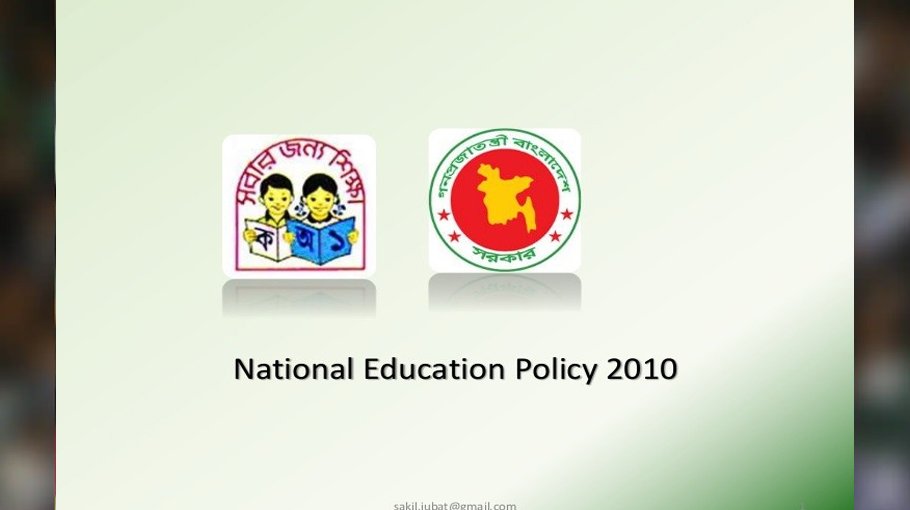12 years elapse, edn law still remote

Although the move to enact Bangladesh’s first education law was taken just after the formulation of the ‘National Education Policy, 2010’, the proposed education law has not seen the light even after 12 years.
The first draft of the proposed ‘Education Act’ was prepared in 2011 in line with the Education Policy, the file of the proposed law has been moving from the Education Ministry to Cabinet Division for a couple of years.
At least 53 meetings were held on the issue since 2011. Draft of the proposed law was uploaded on the ministry’s website several times for opinion from stakeholders and people.
After obtaining opinions from eminent educationists and teachers the draft was sent to the Cabinet Division for its approval several times, but the Education Ministry could not finalize the draft law.
The ministry held meetings with the Cabinet Division at least five times on the law. But the draft law prepared by the ministry could not satisfy the policymakers of the government. At last, the Cabinet Division returned the draft of the proposed education law after the fifth review.
An official of the ministry said that although it has been delayed, they are working on the enactment of the law.
Md Abu Bakar Siddique, secretary of Secondary and Higher Education Division of the Education Ministry, said that some observations had been given by the Cabinet Division on the proposed law. The final decision from the ministry over the draft of the proposed law will be taken after scrutinising the observations of the Cabinet Division.
Educationists, teachers and others said it is very sad that the law has not been enacted even after 12 years. Some of them alleged that the law is not being enacted due to the invisible pressure from note-guide and coaching center traders, and lobbying by vested group involved in the recruitment and admission trade in educational institutions.
Principal Kazi Farooq Ahmed, a member of the drafting committee of the proposed law, said the law should be passed without inordinate delay.
The Education Ministry had prepared the draft of the country’s first education law with the provision of imposing ban on printing, publishing and marketing notebooks and guidebooks known as a menace to the education system.
After preparing the latest draft, Education Minister Dipu Moni on June 19 this year told Parliament that the proposed ‘Education Act’ would see the light soon.
Later, the Education Ministry had sent the draft of ‘Education Bill, 2022’ to the Cabinet Division for approval.
The ‘National Education Policy, 2010’ recommended the formulation of an education law for proper implementation of the education policy. Against this backdrop, the Education Ministry had taken the initiative to prepare a law and a sub-committee of the education policy implementation committee had prepared a draft law for the first time on January 26 in 2011.
The first draft faced criticism over the issue of notebooks, guidebooks, supplementary books and private coaching system.
Amid the criticism, the Education Ministry sent the first draft of the ‘Education Act’ to the Cabinet Division in 2016. The Cabinet Division sent it back with some observations as the-then draft gave legitimacy to coaching and private tuition in the name of ‘shadow education’.
The Cabinet Division had sent back the draft of the ‘Education Act’ for the third time in 2021 due to various errors, limitations, ambiguities and bulk size.
According to the latest draft, the printing, publishing and marketing of notebooks and guidebooks are punishable. It also states that if any teacher forces his students to purchase notebooks and guidebooks, legal action will be taken against him or her.
A law enacted in 1980 also prohibits the notebooks and guidebooks up to the eighth grade. So, notebooks and guidebooks are running now in the country in the name of supplementary books or education-aid books.
The draft law states that the publication of supplementary books and education-aid books will be allowed only after approval from the authorities concerned. However, the draft says that if a teacher forces students to purchase supplementary books and education-aid books, it will be considered misconduct and disciplinary actions will be taken against him or her.
Academics and educationists opposed the provision, saying that there will be a room to legalize the operation of notebooks and guidebooks in the name of supplementary books and commercial coaching in the name of private tuition. They said that there is no difference between the note-guidebook and supplementary books.



